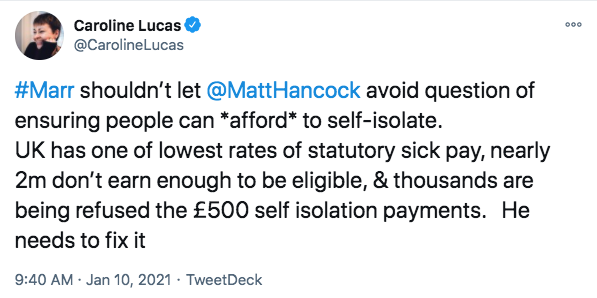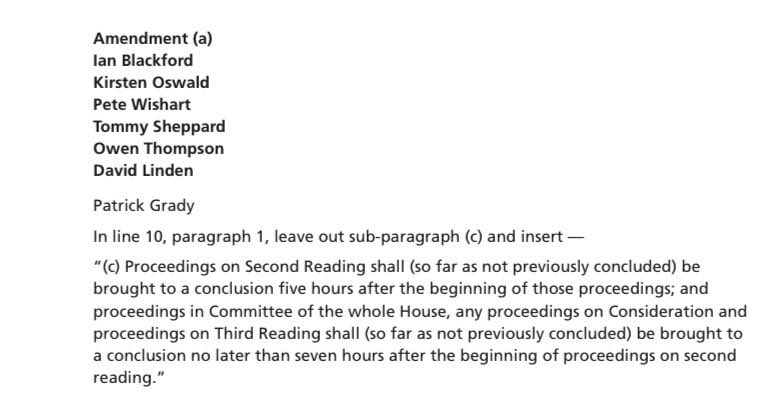
With Covid raging across the country, important issues are sliding down the news agenda. So let’s talk about scrutiny: a thread. 1/
First up: freedom of movement (FoM). Less than a year ago, Labour leader @Keir_Starmer said he would ‘bring back, argue for, challenge’ the elimination of EU FoM. As made clear on #Marr, that position has now changed. 2/ mirror.co.uk/news/politics/…
Without an opposition ‘arguing for’ FoM, the Govt has carte blanche to make UK workers the least competitive in Europe. And, whether or not you think supporting FoM is an electable position (as internationalists, we do), restricting immigration will hurt our economy. 3/
Take a look at the care sector - already understaffed, there’s no provision for senior care workers/registered managers on the shortage occupation list (skilled roles we need migrants to fill), meaning they must meet points-based immigration criteria. 4/
communitycare.co.uk/2020/10/01/end…
communitycare.co.uk/2020/10/01/end…
This is an economic issue. Care staff are critical to frontline efforts against Covid. On top of poor pay in the sector, restrictive immigration policy damages the UK’s ability to provide the urgent care that’s needed and improve recruitment in this vital, underfunded area. 5/
Without an opposition advocating for FoM, sectors like this will lose out on huge amounts of talent from Europe. Our polling has shown more than half of Brits support FoM when they understand how it works for Britain. 6/
independent.co.uk/voices/immigra…
independent.co.uk/voices/immigra…
Next up: @Jacob_Rees_Mogg dissolving the Commons Brexit committee, blocking a planned inquiry into the agreement w/ televised evidence sessions & an authoritative report assessing the deal in detail. Got all that? 7/
independent.co.uk/news/uk/politi…
independent.co.uk/news/uk/politi…
Without a specific Commons committee monitoring implementation of the deal, we’re left without scrutiny on this four-years-in-the-making trade agreement. How does the Govt expect to improve on this thin-as-gruel deal w/o a rigorous analysis of its flaws? 8/
The problem with external scrutiny – from business groups and organisations such as ours – is that Tory ministers conveniently forget they’ve been briefed about potential issues once they start happening. Case in point: border disruption and Gove. 9/ theguardian.com/politics/2021/…
Third: workers’ rights, and the erosion of them by this Govt. If you haven’t already read this piece by @MoyerLee, we urge you to do so. With so many minds focused on Covid, the Govt may start dismantling protections behind the scenes. 10/
aljazeera.com/opinions/2021/…
aljazeera.com/opinions/2021/…
Under the current trade deal, the bar for proof of breaches of ‘Level Playing Field’ rules is too high to be consistently enforceable, leaving standards vulnerable. It is notoriously difficult to prove that any lowering of protections affects trade or investment. 11/
Again, scrutiny must be rigorous, not only from the opposition but from places like the (now dissolved) Commons Brexit committee. We cannot allow the Covid crisis – or the clean-up afterwards – to act as a smokescreen for weakening labour laws. 12/
The UK already has one of the lowest rates of statutory sick pay. If this right remains unchanged during the worst public health crisis for a generation, we dread to think what might be next on the cards. 13/ 

TL;DR – from FoM to workers’ rights, via the Commons Brexit committee, this Govt’s most controversial moves are sliding through unscrutinised thanks to Covid. We must keep digging beneath the headlines and hold these issues up to the light. Or we will all suffer. /ends
• • •
Missing some Tweet in this thread? You can try to
force a refresh



